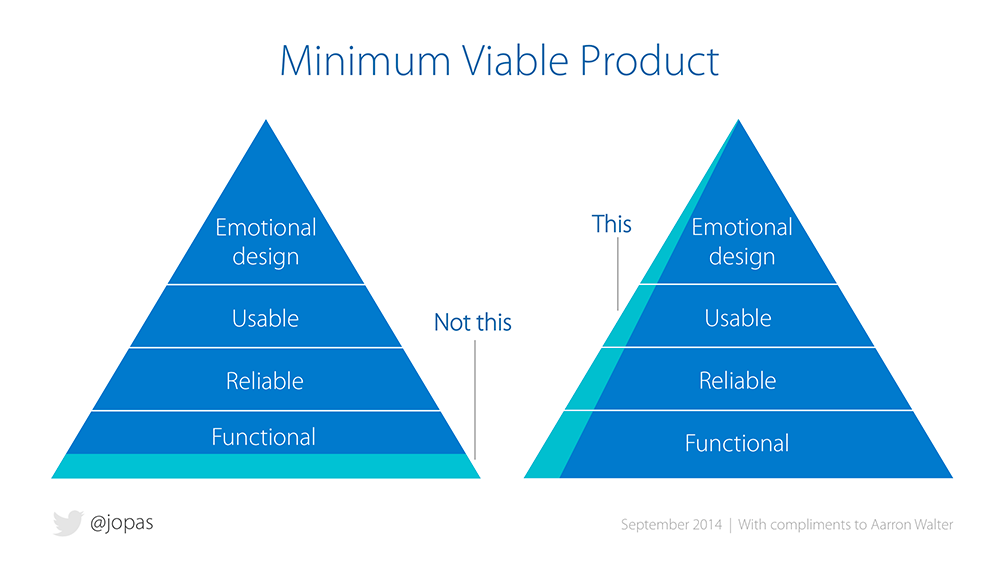What I wish I knew starting off
Let’s face it: entrepreneurship and startups are hard. It pays off though because, as you make mistakes and “fail fast”, the knowledge you gain is tremendous. That being said, here’s some things I think would have benefited my journey along the way:
People needs (heads down) time to work #
This one might seem obvious at first (and over-touted), but it’s important. People need time to work and, especially with product development, a significant chunk of this time needs to be uninterrupted. Context switching (taking your mind off a task to focus on something new) is very expensive. Most day-to-day tasks require a lead up period in order to “get in the zone” and truly be productive. Switching gears—a tap on the shoulder, a scheduled meeting, etc.—will require a re-focus and take more time to get back into the swing of things.
Don’t distract your employees/co-workers as it may be more harmful than you think to their overall productivity. Collaborations and meetings are necessary and helpful, but make sure they work to facilitate and compliment rather than obstruct.
Trust your teammates, or get new ones #
When you hire, it’s important to think about things like “talent” and “culture” and making sure someone is the right fit for your team. Something that may be overlooked, is whether or not you can trust this person to get the job done. Whether you are an employer, or an employee, being able to trust your team is extremely important in product development.
Trust spans much more than having the knowledge to get a certain task done. It also includes whether or not that person has the knowledge (and confidence) to delegate a certain task or ask for help when they cannot fill a certain niche. Especially in small startups, every hour and ounce of energy counts. Trust that your team can be honest, be reliable, and be able to identify when they need to adapt.
Lack of trust is one of the biggest blockers in getting from Zero to One. Learn to trust and rely on your teammates, or man up and trim the fat — it will be the difference between success and failure.
Fast, efficient communication is key #
One way to become a lean, mean, startup machine is to facilitate communication. There’s a difference between bad communicators and bad communication channels. If you feel a teammate and yourself are struggling to communicate, there may be a problem with the medium to which you are communicating on (If that’s not the case, then we should re-visit #2 and “trim the fat”).
In short, make it as easy as possible for you and your team to communicate. This may mean using real-time communication like Slack, or jumping on Google Hangouts, or taking it back old school on a conference line. The goal of communication should be to be concise, to the point, and convey as much information as possible with clarity and brevity in mind.
Aside from tooling, take a look at how you and your team communicates. Make sure there is a decision maker and make sure that people are actually listening. Arguments and debates are healthy, but keep an eye on how much time this is sucking from a solution.
Lastly, while over-communication, in general, is key - so is limiting opinions and the number of people needed to make a decision. Only bring in the people that need to be involved on a particular topic in order to streamline communication as well. Too many opinions lead to too many distractions which lead to too much time spent not resolving something.
You cannot be perfect #
This goes without saying, but you can’t (always) be perfect. When working on a product or company, always keep in mind that MVP’s are what creates traction, MVP’s are what’s testable, and MVP’s are what keep you from losing sleep at night over an unfinished product.
When starting out, it’s easy to think of every possible scenario of every possible permutation of every possible situation. Don’t do that. Give yourself and your team realistic goals and simply do that.

(Visualization wonderfully created by @jopas)
Learn to make opportunities out of nothing, learn to see the benefits of your failures, but more broadly, learn to adapt. Adapting means knowing when to step back, re-focus, and really understand the problem you are trying to solve.
Whenever you get stuck on a problem or get into a scenario where there are too many heads thrown at an idea (“Too Many Cooks In The Kitchen”), don’t hesitate to break up the conversation, let it simmer, and attack the problem with a fresh perspective. This saves time, money, and lots and lots of headaches.
Just remember, always keep moving forward.